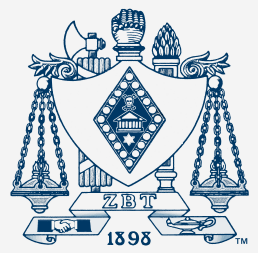Alumni & Chapter News
Chapter Spotlight – Omicron, Tufts University
Issue: Fall 2019
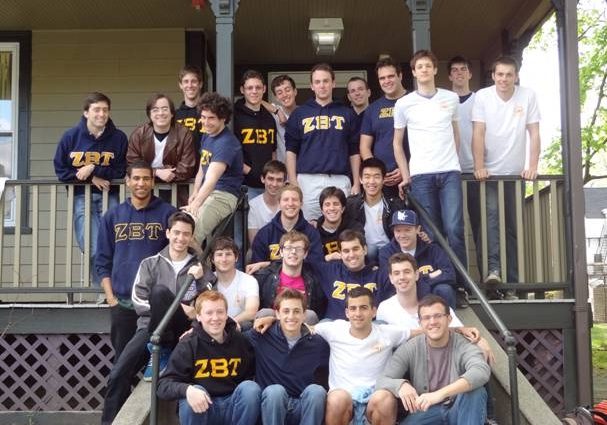
There’s an old African proverb attributed to James Baldwin which states, “know from whence you came. If you know whence you came, there are absolutely no limitations to where you can go.” Then there are history books, which can help tell the stories we don’t know. But then, every once in a while, the past and the present align in a way to bring stories to life and showcase just how far we’ve come and why we are the way we are. This is true for a person throughout their life as well as the Fraternity at large. Think about your chapter’s story; how far back does it go? How far back can you personally talk about the history of your chapter? In our age of technology and instant results, sometimes we forget where we come from and how we got to where we are today.
For those who may not know, ZBT’s chapter naming protocol is typically assigned chronologically, with chapters at our oldest schools receiving single-letter designations and chapters starting at new schools receiving “next letter up” designations. But when ZBT merged with Phi Sigma Delta and Phi Epsilon Pi, and by extension Kappa Nu and Phi Alpha, or absorbed local fraternities, certain chapter names were kept alive to honor them and their history.
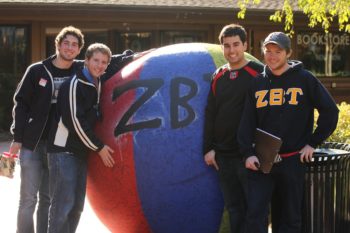 ZBT’s chapter at Tufts University is one of these exceptions, as its Omicron designation is a tribute to the Omicron Chapter of Phi Epsilon Pi, which was at Tufts from 1916 through the ZBT – Phi Epsilon Pi merger of 1970. In 1986, Brother Hugh L. Bassewitz, Omicron (Tufts) 1990, “was interested in ZBT because of my father’s affiliation and because I was interested in joining a fraternity with Jewish roots.” Bassewitz’s father, Wesley, is an alumnus of ZBT’s Alpha Kappa Chapter at the University of Wisconsin-Madison.
ZBT’s chapter at Tufts University is one of these exceptions, as its Omicron designation is a tribute to the Omicron Chapter of Phi Epsilon Pi, which was at Tufts from 1916 through the ZBT – Phi Epsilon Pi merger of 1970. In 1986, Brother Hugh L. Bassewitz, Omicron (Tufts) 1990, “was interested in ZBT because of my father’s affiliation and because I was interested in joining a fraternity with Jewish roots.” Bassewitz’s father, Wesley, is an alumnus of ZBT’s Alpha Kappa Chapter at the University of Wisconsin-Madison.
The process wasn’t easy, just as Hugh or any other founding/refounding father of a chapter can attest. There were obstacles with other fraternities, student government and the administration, but Hugh and his brothers persevered, preserving PhiEp’s history. They knew the value ZBT could bring to the campus and the value they collectively could bring to the fraternity community. They endured, and they sought to re-engage PhiEp Omicron alumni to “connect Tufts past history with a ZBT antecedent,” though Hugh wishes the results would’ve been more fruitful. Of course, this was “before social media such as Facebook, commercial use of the internet, and email,” which would’ve certainly helped.
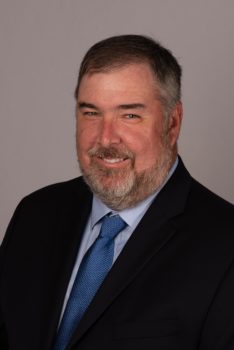 Today, 33 years after Hugh stepped on campus and surveyed the community, his impact remains present. An alumnus of the chapter, William (Bill) F. Sullivan, Omicron (Tufts) 1997, currently serves on the Fraternity’s Supreme Council. While Bill was an undergraduate, the chapter reached a housing agreement with the school, and Omicron continues to reside in the same facility, more than 20 years later.
Today, 33 years after Hugh stepped on campus and surveyed the community, his impact remains present. An alumnus of the chapter, William (Bill) F. Sullivan, Omicron (Tufts) 1997, currently serves on the Fraternity’s Supreme Council. While Bill was an undergraduate, the chapter reached a housing agreement with the school, and Omicron continues to reside in the same facility, more than 20 years later.
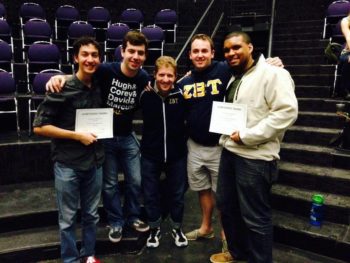
The chapter maintains a positive reputation on campus and is working to engage alumni in the way Hugh wished they could have when Omicron was first restarting. That engagement adds a sense of “gratitude” and pride in “what ZBT at Tufts has become after 30 years: a respected brotherhood that has produced over 2 generations of outstanding Tufts graduates that have meaningfully contributed to society in no small part due to their fraternal experiences of camaraderie, teamwork, and friendship.” In these challenging times for the greater fraternity community, Hugh offers a glimpse into the future for undergraduates to consider: “Almost all of us believe the lessons we learned through this experience, perseverance and believing in yourself to achieve a collective goal, helped shape who we are today.”
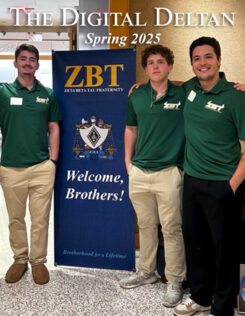 Spring 2025
Spring 2025 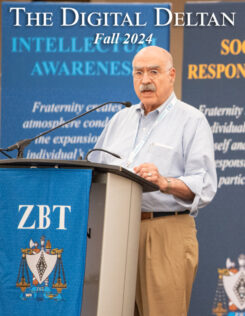 Fall 2024
Fall 2024 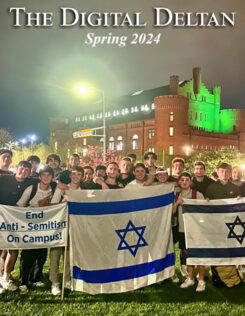 Spring 2024
Spring 2024 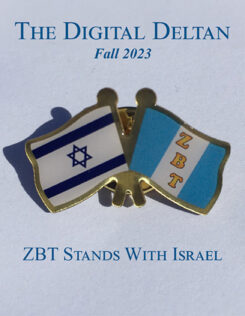 Fall 2023
Fall 2023 